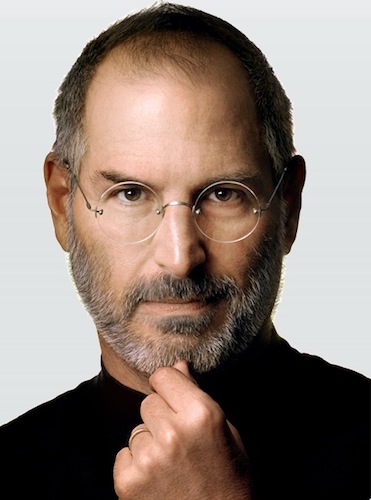It has been a while since Steve Jobs handed in his papers as Apple CEO. And it is a tribute to his work in that capacity that many people believes that his resignation will not have any significant adverse effect on the company he founded and took to such great heights. A few days ago, I was part of a discussion on television that debated the impact that Job’s resignation as CEO (well, iCEO, in Applespeak) would have on the company, and I was struck by just how so many people felt that Apple would continue to be the magical company it has been even without Jobs at the helm. Sentences like “they have been preparing for this,” “they must have contingency plans,” “they are not naive, they must have known this would happen one day, and therefore, must have plans in place,” and that favorite “there is more to Apple than Steve Jobs,” have been uttered with unfailing confidence by tech pundits. As a person, who has immense respect and affection for the company, I hope they are right. As a tech journalist, who has been covering technology for about a dozen years now, I know they are not.
For, contrary to what some people think, Jobs’ greatest ability was not to conceptualize fantastic products, but to sell them. He could present the products, warts and all, and make the industry, and consumers believe that it was the coolest thing since sliced bread. And more often than not, he succeeded. The iPhone is a prime example. It was a phone that literally stood nowhere near Nokia’s Symbian devices in terms of features, functions and year, even apps. But the man in the black turtleneck and jeans had us believe that its phenomenal interface alone was worth much more. Of course, he was right, but the fact is – would we have believed the same from any other person? After all, Bill Gates could not move us towards tablets, could he? Even though he talked about them going mainstream much before the iPad and showed us a tablet PC at Comdex more than a decade ago. Many pundits felt that Palm’s Web OS was more than a match for Apple’s iOS but geez, the numbers did not back them up. Numerous CEOs have pranced stages, parading devices that on paper are more formidable than those from the fruit-named company in Cupertino. But have not been able to convince consumers to buy into their dreams.
Which is where Apple will miss Jobs the most – as an artful peddler of magical dreams rather than a creator of exceptional products.
The man made us stop missing Flash on mobile devices, made us use tablets without USB ports, made us realize that tech specs are secondary to user experience, and even convinced so many of us to use the extremely painful iTunes to transfer music to our portable devices. Yes, he had excellent products and a terrific team to back him up but what actually made everything click was his conviction that he could offer the consumer that was not just different, but magical. When was the last time you saw a CEO on stage promoting a device that cost less than hundred dollars and could actually cannibalise his other devices, with absolute conviction that it was revolutionary? Jobs did that with the iPod shuffle. People are still wondering where tablets fit into their tech lifestyle, but thanks to Jobs, they do so even as they cradle an iPad in their laps!
Was it his conviction? His passion? His charisma? His Reality Distortion Field? We will never know, but the fact was that Jobs could make people believe that a product was not just good, but great, if not bordering on the magical. And it is this ability that Apple will miss in the coming days, especially when it tries to introduce products in brand new segments. For, as many rueful executives will tell you, making an excellent product is only part of the job, the Really valuable part is convincing people that it is great.
Apple will continue to make stunning products, no doubt. But it will need a new sorcerer on the stage to convince people that it is more Hogwarts than human. I am not saying that such a person will not emerge. I am sure he or she will, but it will take time. To build credibility. To develop the aura. To make the magic potent. For, Apple products are not about features and functions, but sheer magic. It is the experience that matters when you are using an iPad or iPhone, not the specs. Apple will need someone to get that feeling across to the world now that Jobs has stepped down. It is not about products or processes or logistics. It is all about making people believe in your product. Jobs could do that
Which is why I say that Apple is going to miss Steve Jobs? At least in the short run. It has not lost its iCEO, but its greatest salesperson. The man who could sell dreams has stepped back.
And no matter what the wise people say, you cannot have a contingency plan to replace charisma. My bowed head is not for Apple. The company will go on and hopefully will remain as impressive as it has been.
But technology has just lost its greatest salesman.






